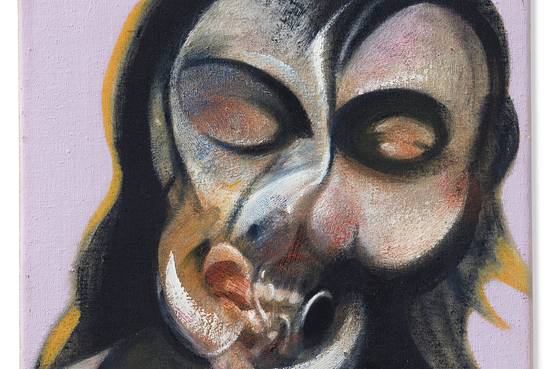Relationships • Breaking Up & Heartbreak
The Fear of Ending a Relationship
Let us imagine that we know what we want – to leave a relationship – but that we are suffering from a problem which inhibits us from acting on our wishes: we can’t bear to cause another person pain, especially another person towards whom we feel a sense of loyalty, who has been kind to us, who looks up to us for their safety and their future, who has expectations of us and with whom we might have been planning a trip to another continent in a few months. Perhaps we have come near to telling them on a dozen occasions, but always pulled back at the last moment. We tell ourselves that we’ll get around to it ‘after the holidays’, ‘once their birthday party is over’, ‘next year’, ‘in the morning’, and yet the deadlines roll by and we are still here.
Our discomfort has to do with the thought of unleashing an appalling upset: they will dissolve into tears, there will be sobbing, which may last a very long time, there will be wailing, uncontrollable cries and mountains of wet tissues – all because of a truth that currently lurks in the recesses of our cranium. We will have been responsible for dragging a formerly competent and independent person into chaos; it’s more than we can bear. It sounds peculiar, but it might be better for us to spend the next few decades unfulfilled than experience even five minutes of unbounded upset. In another part of our minds, there may also be a terror. More than we realise day to day, we’re scared of our partner. By telling them it’s over, we risk a discharge of titanic anger. They may scream at us, accuse us of leading them on, of being a charlatan and a disgrace. There might be violence and danger.

There is a certain symmetry to our fears. We may tell them and by so doing, kill them. Or we may tell them and they will turn around and kill us; kill or be killed. No wonder we put off the news. The reasonable adult part of our minds knows that these fears of killing and dying can’t be true – but this may weigh very little in how we unconsciously feel. Wielding sensible arguments can at points be as effective as telling a person with vertigo that the balcony won’t collapse or a person with depression that there are perfectly good grounds to be cheerful. A lot of the mind is not amenable to hard-headed logic. In an ancestral part of us, we simply operate with a sense that going against the wishes of a significant person will mean either endangering their lives or our own.
To explain the origins of such terrors, childhood is the place to turn, as it always is when trying to account for disproportionate and limitless fears. Perhaps we are the offspring of a fragile parent whom we loved profoundly and whom it would have broken our hearts to disappoint. They might have been struggling with their mental or physical health, they might have been maltreated by another adult. Maybe they were relying on us to hold them back from despair or justify their whole lives. We may have derived an early impression that we had to conform to their idea of us if we weren’t to cause them grave damage, that our wishes and needs could easily have driven them to the edge, that by being more ourselves, we might have broken their spirit. We simply loved them too much, and at the same time, felt them to be too weak, to ask them to take on our reality. We can be three years old and, without knowing any of this consciously, have taken such messages on board. And as a result, we might then have learnt to play very quietly, to reign in our boisterousness or mischievousness, our aggression or our intelligence, to be extremely cheerful and helpful around the house, to be ‘no trouble at all’ towards a beloved adult who already seemed to have far too much on their plate.
Alternatively, we might have spent our most vulnerable years around a person who responded to any frustration caused by another person with extreme anger. It can be hard to appreciate just how terrifying an enraged adult can seem to a sensitive two year old. Another adult might know that this red-faced figure of course wasn’t going to murder anyone, they’re just letting rip for a while and will pick up the pieces of a smashed vase soon enough, but that’s not at all how it can seem through a child’s eyes. How are they to know that this person many times their size wouldn’t just go one step further and, at the end of their ranting, pick up a hammer and smash their skull in? How can they be certain that the momentarily genuinely out of control parent who just broke the door wouldn’t for that matter throw them out of the window too. Child murder may be entirely alien to the furious adult, but that’s not how it can strike a sensitive offspring. One doesn’t have to actually murder anyone to come across – to an unformed mind – as someone who seriously might. No wonder we might be a bit scared of sharing some awkward news.
Our minds are freighted with fears that stem from things that happened under precise circumstances long ago but that continue to have a potent, subterranean, scarcely recognised and immense force in our lives today. By taking stock of the past, the task is to acknowledge that these fears are very real but only in a very limited place: our own minds. They don’t belong to adult reality. The catastrophe we fear will happen has already happened: we have already experienced someone who seemed to risk killing themselves if the news grew too bad – and someone who looked like they were perhaps going to kill whomever displeased them. But these issues are firmly located in another era. We need to take on board an always unlikely-sounding thought, we are now adults, which means, there is a robustness to ourselves and to our dealings with others. Another adult is highly unlikely to collapse on us and if they do, there are plenty of measures we can take. We will know how to help them cope with their grief, directly and indirectly. It may seem as if it will never end, but that is a child’s reasoning, not an adult’s. In reality, it will be very bad for a few hours, or days or weeks, but then eventually, as happens, they will get over it. They will recover their good humour, they will wake up one morning and see the world hasn’t ended and that they know how to go on. Similarly, they won’t actually try to pick up the nearest axe and chop us into small pieces. They may be furious, they may shout, there may be some ugly words – but again, we are now tall and independent, we can get away, in extremis, we have the number of the police and a lawyer, we can let the fury vent, and like a well-built bridge in a hurricane, be utterly confident that we can withstand anything that will come our way.
To further lend us courage, we should remember a distinction between being kind and seeming kind. It can look as if the kind thing to do is never to anger or distress someone – and therefore, never to give a person we have loved unwelcome news. But that is to overlook the more insidious ways in which we can ruin someone’s life. To stay with a person because we wish to avoid a few hours of unpleasantness is no favour to them – if we then go on to be bitter, mean, snide, unfaithful and depressed around them for the next few decades. We’re not helping someone by sparing them a bad break up scene, if we then deliver a life-long foot-dragging scene.

A surprising amount of the misery of the world comes from people being overly keen to appear kind, or rather, too cowardly to cause others short term pain. The truly courageous way to leave is to allow ourselves to be hated for a while by someone who still loves us. We shouldn’t imagine that they will never find anyone else like us: they may believe it now and might even sweetly tell us so. But they won’t believe it when they finally understand who we are. Real kindness means getting out – even though the holiday has been booked, the apartment paid for and the wedding arranged. There’s nothing wrong with and nothing dangerous about deciding someone isn’t for us. There is something very wrong with ruining large chunks of someone else’s life while we squeamishly or fearfully hesitate to get out of the way.

























